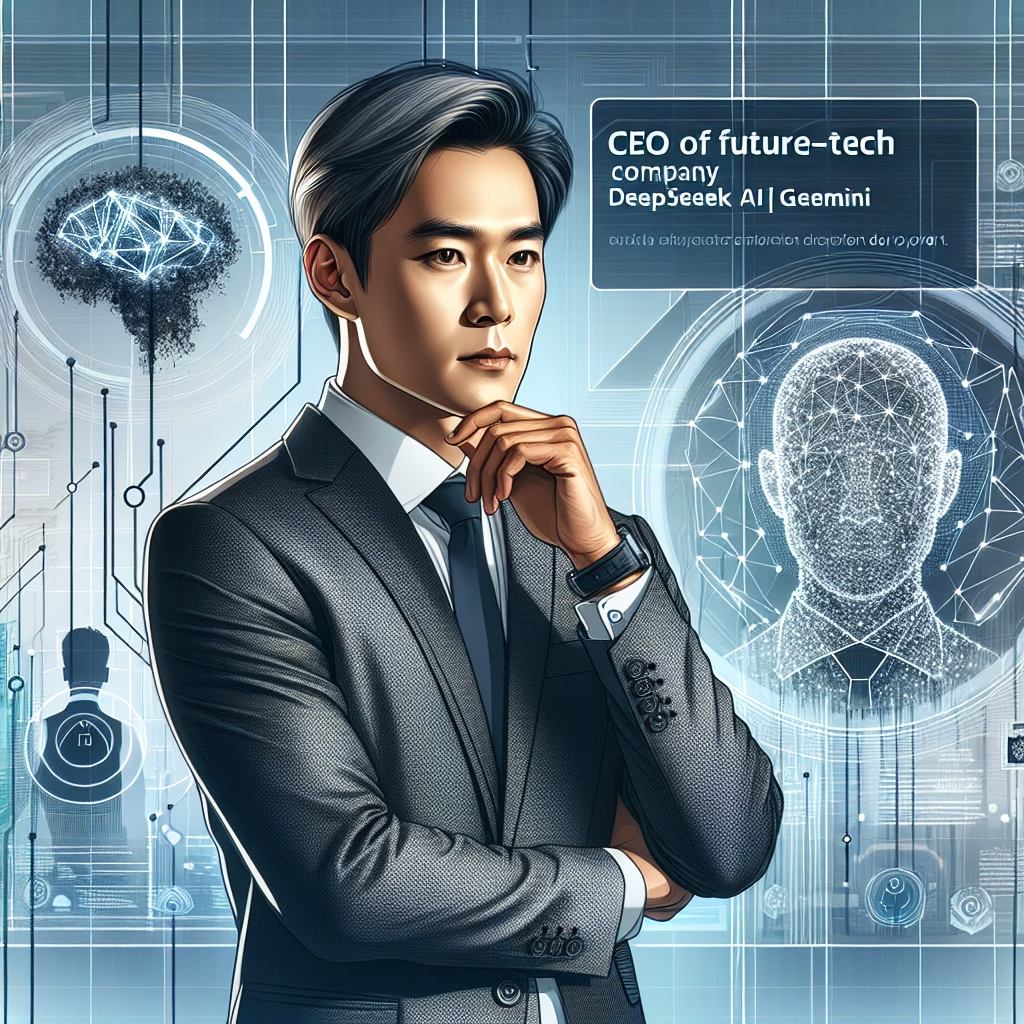Google DeepMind CEO Demis Hassabis’ DeepSeek AI and the Future of Artificial Intelligence
The world of artificial intelligence (AI) continues to evolve at a rapid pace, and leading the charge is DeepMind’s CEO, Demis Hassabis. His contributions to AI and machine learning have already transformed industries, and now his latest venture, DeepSeek AI, is making waves in the AI community. But what exactly is DeepSeek AI, and how does it compare to Google’s Gemini? In this article, we’ll explore Hassabis’ latest innovation and its potential impact on the future of AI.
Who Is Demis Hassabis?
Before diving into DeepSeek AI, it’s important to understand the man behind it. Demis Hassabis is a renowned AI researcher, neuroscientist, and entrepreneur. He co-founded DeepMind in 2010, which was later acquired by Google in 2014. Under his leadership, DeepMind achieved remarkable AI milestones, including:
- Developing AlphaGo, the AI system that defeated world champion Go players.
- Creating AlphaFold, a revolutionary system for predicting protein structures.
- Pioneering reinforcement learning techniques that advanced AI capabilities.
With these achievements, Hassabis has cemented himself as one of the most influential minds in AI. Now, with DeepSeek AI, he continues to push technological boundaries.
What is DeepSeek AI?
DeepSeek AI is a cutting-edge artificial intelligence initiative aiming to expand the possibilities of machine learning and large language models (LLMs). While details about DeepSeek AI remain somewhat limited, reports suggest that the project is developing advanced AI models capable of competing with leading AI systems, such as OpenAI’s GPT-4 and Google DeepMind’s Gemini.
The core mission of DeepSeek AI revolves around:
- Enhancing natural language processing (NLP) for more human-like interactions.
- Improving AI reasoning capabilities for complex problem-solving.
- Developing ethical AI systems that prioritize safety and transparency.
Given Hassabis’ track record, DeepSeek AI is expected to bring groundbreaking advancements to the AI industry, potentially reshaping how businesses and individuals interact with digital assistants and AI-driven software.
How Does DeepSeek AI Compare to Google’s Gemini?
With Google’s Gemini AI already making headlines, how does DeepSeek AI stack up? While both AI initiatives share similarities in their goals, they have distinct approaches and focus areas.
Technology and Architecture
Both DeepSeek AI and Gemini leverage highly advanced neural networks, but their architectural strategies may differ:
- Gemini: Developed by Google DeepMind, Gemini is built on multi-modal AI models, integrating text, images, and even video into its learning process.
- DeepSeek AI: While specifics are limited, DeepSeek AI is rumored to focus more on reasoning, enhancing an AI’s ability to solve complex problems independently.
AI Capabilities
DeepSeek AI aims to push beyond existing AI systems’ limitations, particularly in reasoning and contextual understanding. Some expected capabilities include:
- Improved problem-solving: Potentially outperforming Gemini in strategic decision-making.
- Enhanced ethical AI: Focus on reducing AI biases and making AI reasoning more transparent.
- Advanced natural dialogue: Achieving more natural and coherent AI-human conversations.
Market Applications
Both AI models will likely impact various industries, but some differences may emerge:
- Google Gemini: Expected to integrate deeply into Google products like Search, Google Assistant, and enterprise applications.
- DeepSeek AI: Potentially offering broader AI research and enterprise solutions beyond Google’s ecosystem.
The Impact of DeepSeek AI on the AI Industry
The emergence of DeepSeek AI could disrupt the AI field in several ways. If executed successfully, it could redefine how AI models operate, resulting in:
- More Competitive AI Innovations: By challenging existing AI leaders like OpenAI and Google DeepMind, DeepSeek AI could foster faster breakthroughs in AI technology.
- New Standards for AI Ethics: With growing concerns over AI regulation, DeepSeek AI could lead efforts in responsible AI development.
- Enhanced Enterprise AI Applications: Businesses might gain access to AI tools with superior reasoning and decision-making capabilities.
Challenges DeepSeek AI May Face
While DeepSeek AI presents exciting opportunities, it also comes with notable challenges:
- Competition: Established AI companies like Google, OpenAI, and Meta already hold dominant positions.
- Data and Compute Costs: Training large AI models requires vast amounts of data and computational power.
- Regulatory Hurdles: Governments worldwide are increasing oversight on AI development, which could impact DeepSeek AI’s expansion.
Despite these potential setbacks, DeepSeek AI’s ambitious goals suggest it could emerge as a major player in the AI landscape.
Final Thoughts
Demis Hassabis has consistently pushed the boundaries of AI innovation, and DeepSeek AI is no exception. With a strong focus on reasoning, ethical AI, and advanced natural dialogue processing, this new AI initiative has the potential to compete with—and even surpass—existing AI models like Google’s Gemini.
The coming years will reveal how DeepSeek AI unfolds and impacts industries worldwide. Whether it’s improving AI ethics, enhancing enterprises’ decision-making capabilities, or redefining how we interact with AI, one thing is clear: the future of artificial intelligence just got even more exciting.
As developments around DeepSeek AI continue, staying informed about the latest AI trends will be crucial. What are your thoughts on DeepSeek AI and its potential role in the future of artificial intelligence? Share your opinions in the comments below!
< lang="en">







Leave a Reply